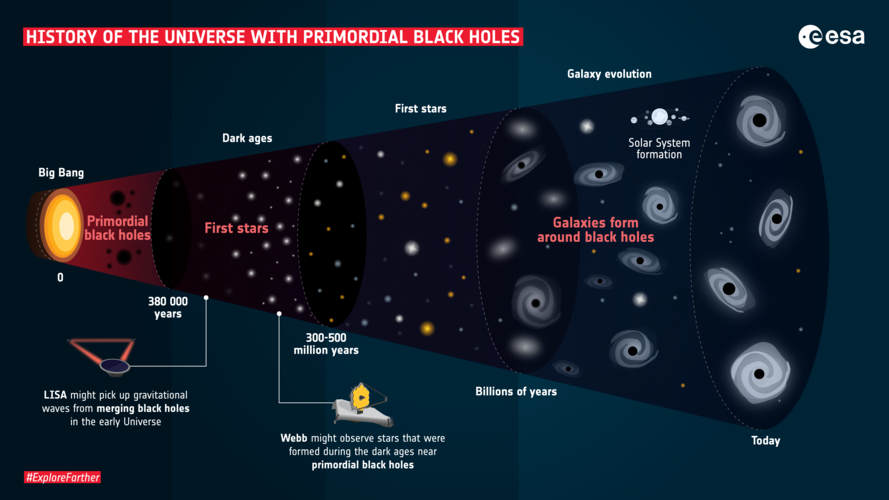If most of the black holes formed immediately after the Big Bang, they could have started merging in the early Universe, forming more and more massive black holes over time. ESA’s future gravitational wave space observatory, LISA, might pick up the signals of those mergers if primordial black holes exist. Small black holes might simply be the primordial black holes that have not merged into larger ones yet.
According to this model, the Universe would be filled with black holes all over. Stars would start to form around these clumps of ‘dark matter’, creating solar systems and galaxies over billions of years. If the first stars indeed formed around primordial black holes, they would exist earlier in the Universe than is expected by the ‘standard’ model.
“Primordial black holes, if they do exist, could well be the seeds from which all black holes form, including the one at the centre of the Milky Way,” says Priyamvada Natarajan.

